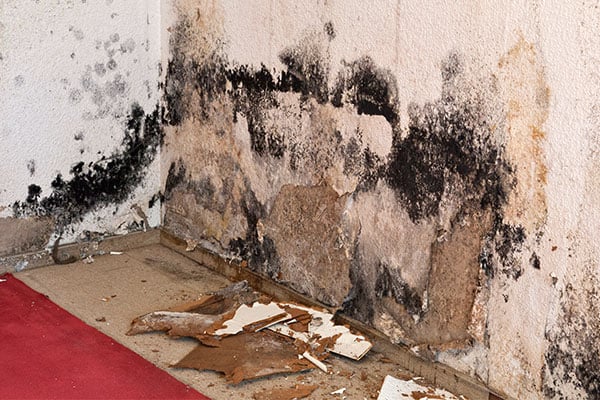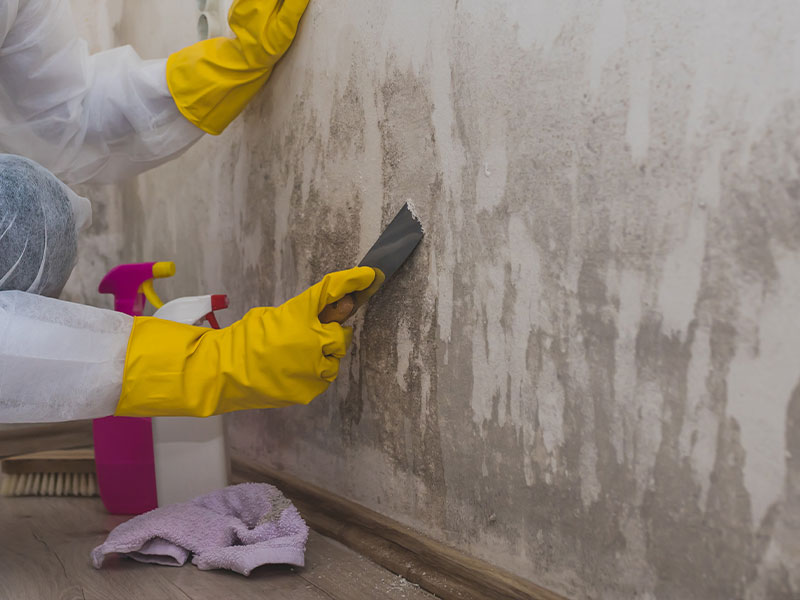Precision Mold Removal Techniques for Ensuring a Healthy And Balanced Living Atmosphere
In the world of maintaining a healthy and balanced living atmosphere, the efficacy of mold and mildew remediation strategies stands as a critical aspect that demands precision and expertise. Mold and mildew infestations can be dangerous, influencing interior air top quality and presenting risks to both residential property and health. Resolving mold and mildew growth exceeds simple surface cleansing; it necessitates a detailed technique that includes assessment, targeted techniques, and the utilization of innovative technologies. By discovering the complexities of mold remediation techniques, one can obtain insight into protecting against mold-related problems and cultivating a much healthier habitat.
Recognizing Mold Growth Aspects
Understanding the key variables that add to mold growth is crucial in developing efficient methods for mold and mildew remediation. Mold needs three major elements to flourish: moisture, ideal temperatures, and organic material for food. Dampness is perhaps the most crucial element as mold and mildew spores can quickly spread and conquer in moist atmospheres.

Assessment of Mold Infestations
Having recognized the crucial variables that add to mold development, the following important action is assessing the level of mold and mildew infestations within a property. Mold and mildew analysis entails a detailed assessment to determine the kind of mold and mildew existing, the affected locations, and the extent of the invasion. Expert mold and mildew assessors utilize a mix of visual examination, wetness meters, thermal imaging cams, and air sampling to collect information on the mold issue.
Visual assessment is often the initial step in assessing mold problems, where experts visually examine areas prone to mold growth, such as basements, shower rooms, and attic rooms. This helps determine noticeable mold growth and areas with indications of water damages or high moisture levels. Dampness meters are then utilized to identify wetness degrees in building products, assisting in situating covert mold and mildew growth behind ceilings or wall surfaces.
Furthermore, thermal imaging electronic cameras can be used to find temperature distinctions that may indicate moisture concerns advertising mold and mildew growth. Air sampling is another vital technique utilized to accumulate air-borne mold spores, offering info on the focus and sorts of mold present in the indoor setting. By utilizing these analysis techniques, experts can precisely review the mold and mildew infestation and establish an efficient remediation strategy to guarantee a healthy and balanced living atmosphere.

Executing Targeted Removal Techniques
To effectively address mold and mildew invasions, carrying out targeted remediation approaches is crucial for removing the origin of mold and mildew growth and making certain a mold-free setting. These strategies entail a methodical approach tailored to the specific mold and mildew problems identified throughout the assessment phase. By targeting the underlying aspects adding to mold and mildew growth, such as dampness breach, insufficient air flow, or building material flaws, remediation efforts can be a lot more accurate and effective.
One targeted remediation approach is to attend to water leaks immediately to stop wetness build-up, which is a main chauffeur of mold expansion. This might include fixing plumbing leaks, improving drain systems, or boosting waterproofing steps. In addition, improving air flow in damp locations can help in reducing moisture levels, producing an environment less helpful to mold development.
Moreover, targeted remediation methods might include eliminating and changing mold-infested products, such as drywall or insulation, and applying antimicrobial treatments to hinder future mold advancement. Routine surveillance and upkeep are vital to sustaining a mold-free atmosphere complying with removal initiatives - mold remediation philadelphia. By carrying out these targeted approaches, homeowner can properly combat mold invasions and advertise a healthier living setting
Using Advanced Mold And Mildew Elimination Technologies
Advanced mold and mildew removal modern technologies play a critical function in addressing mold and mildew concerns successfully and comprehensively. These systems can record and filter out mold spores and various other airborne fragments, significantly minimizing the spread of mold throughout remediation.
Moreover, advanced mold and mildew elimination innovations include infrared electronic cameras that can discover covert dampness resources within walls or ceilings, assisting in the specific identification of areas vulnerable to mold development. mold removal philadelphia. This innovation makes it possible for remediation experts to target afflicted areas more precisely, leading to an extra extensive elimination process
Ultraviolet (UV) light therapy is an additional innovative technology made use of in mold and mildew removal. By leveraging these advanced innovations, mold and mildew removal specialists can properly remove mold and mildew problems and create a healthier living environment for residents.
Stopping Future Mold And Mildew Recurrences
With the effective elimination of mold and mildew problems making use of innovative modern technologies, the emphasis currently changes towards implementing durable approaches to prevent future mold reoccurrences. Stopping mold from repeating is important for preserving a healthy indoor environment. One crucial strategy is to address any kind of underlying wetness problems in the structure. Normal examinations for leakages in plumbing, roof coverings, and windows can aid determine and deal with sources of excess dampness that add to mold and mildew development. website link
Correct air flow is another necessary element of mold avoidance. Making certain ample air flow in all locations of the structure can assist lower moisture degrees and prevent moisture build-up. Utilizing dehumidifiers in moist spaces such as basements can likewise assist in controlling wetness levels.
Preserving cleanliness and promptly resolving any type of water damage or spills can additionally aid avoid mold and mildew development. Regular cleaning routines should consist of dusting, vacuuming, and wiping down surface areas to stop the build-up of mold and mildew spores.
Informing occupants regarding mold and mildew prevention techniques, such as appropriate air flow and moisture control, can additionally contribute to official source a positive approach in stopping future mold problems. By implementing these methods, the threat of mold reappearances can be significantly minimized, leading to a healthier living setting.
Conclusion
By understanding mold growth elements, assessing problems, applying targeted methods, using advanced elimination modern technologies, and stopping future reappearances, one can successfully fight mold concerns. It is vital to focus on mold and mildew removal to make sure the wellness of residents and avoid potential health threats linked with mold and mildew exposure.
